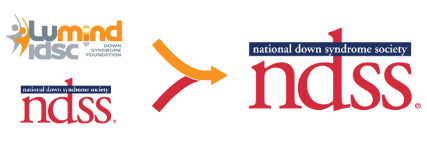Study Finds Assistive Technology Has Positive Outcomes for Children with Down Syndrome and Their Caregivers
In partnership with the LuMind IDSC Foundation (LuMind IDSC), MapHabit, a neuroscience-based assistive technology (AT) provider that leverages visual care plans, released results from their feasibility study showing highly statistically significant improvements in independence and quality of life in children with Down Syndrome, and their support circle.
MapHabit and LuMind IDSC Foundation’s partnership began in 2020 with the goal of offering families of children with Down Syndrome the use of MapHabit’s platform to study the potential of utilizing step-by-step visual support with children with Down Syndrome aged 7 to 17. The manuscript has been published in peer-reviewed journal PLOS ONE with the following highlights:
- Significant positive changes, including higher adaptive behavioral skills and improvements in quality of life relating to the speed/ability to complete activities of daily living (ADL).
- Majority of quality-of-life scores significantly improved (13 out of 18 areas), including cooperation, memory, and enjoyment.
- High satisfaction among parents who noted reduced stress and decreased caregiver burden.
“This is a first-of-kind read-out on the benefit of visual mapping within a scalable, assistive technology platform for caregivers and children with Down Syndrome,” Matt Golden said. He is MapHabit’s CEO and Co-Founder.
The current findings that assistive technology can be used successfully and effectively in family and home settings set the stage for more informative systematic studies using assistive technology for neurodiverse population.
“This partnership brings us closer to our vision of a world where every person with Down syndrome thrives with improved health, independence, and opportunities to reach their fullest potential. We are proud of having supported MapHabit in gathering the initial round of data from users in the Down syndrome community,” said Hampus Hillerstrom, CEO of LuMind IDSC.
“These early data show MapHabit’s digital health solution has promise to address the important need for improved independence of people with Down syndrome,” he continued, “We are hopeful that placebo-controlled studies will confirm that their assistive technology can help improve the daily life for families while addressing the shortage of behavioral health and direct support workers available to people with intellectual and developmental disabilities.”
About MapHabit
MapHabit is an interactive habit-building, education and cognitive engagement platform based in Atlanta, GA that promotes independence and enhances the quality of life for individuals that need additional cognitive support. Utilizing an integrated, visual mapping system, MapHabit provides key tools to better accomplish their activities of daily living, while providing oversight and peace of mind to the entire support circle, including care managers and providers.
About LuMind IDSC
The LuMind IDSC Foundation (LuMind IDSC) envisions a world where every person with Down syndrome thrives with improved health, independence, and opportunities to reach their fullest potential. LuMind IDSC accelerates research to increase availability of therapeutic, diagnostic, and medical care options and provides resources, connections, and support to a vibrant community of individuals with Down syndrome and their families. Founded by two visionary families in 2004, LuMind IDSC has raised a total of $100M in funding for Down syndrome research to prevent the onset of Alzheimer’s disease, improve sleep, and advance independence for people with Down syndrome. For more information, visit www.LuMindIDSC.org.
